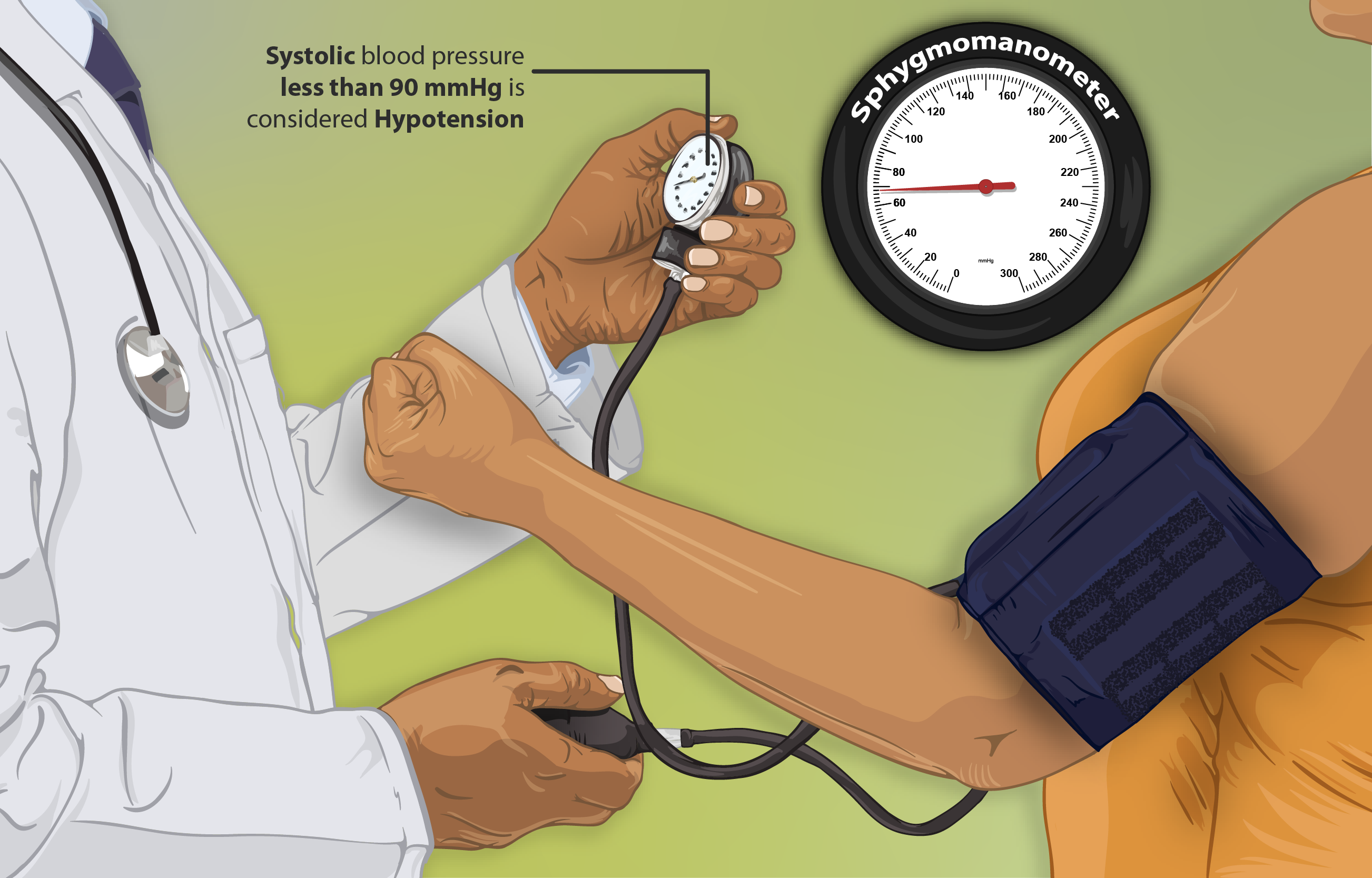Hypotension during COVID-19 and lockdown
I want to commend you and Daily Trust for your tireless efforts in educating the public. As many states are in a lockdown at the moment due to the COVID-19 pandemic, kindly enlighten us about Low Blood Pressure popularly known as Hypotension, because some people are actually suffering from it at the moment. Dareka […]

I want to commend you and Daily Trust for your tireless efforts in educating the public. As many states are in a lockdown at the moment due to the COVID-19 pandemic, kindly enlighten us about Low Blood Pressure popularly known as Hypotension, because some people are actually suffering from it at the moment.
Dareka V.
Thanks, Dareka for your question and your kind words. Low blood pressure or hypotension occurs when blood pressure during and after each heartbeat is much lower than usual.
This means the heart, brain and other parts of the body do not get enough blood. Blood pressure that is borderline low for one person may be normal for another. Most normal blood pressures fall in the range of 100/70 millimetres of mercury (mm Hg) to 140/90 mm Hg. But a significant drop, even as little as 20 mm Hg, can cause problems for some people.
There are three main types of
hypotension:
- 1. Orthostatic hypotension, including postprandial orthostatic hypotension.
- 2. Neurally mediated hypotension (NMH)
- 3. Severe hypotension brought on by a sudden loss of blood, infection, or severe allergic reaction.
Orthostatic hypotension is brought on by a sudden change in body position, most often when shifting from lying down to standing. If this type of hypotension occurs after eating, it is called postprandial orthostatic hypotension.
This form most commonly affects older adults and those with high blood pressure. NMH (Neurally Mediated Hypotension) most often affects young adults and children. It occurs when a person has been standing for a long time. Children usually outgrow this type of hypotension.
Low blood pressure is commonly
caused by drugs such as:
- 1. Alcohol
- 2. Anti-anxiety medications
- 3. Certain antidepressants
- 4. Diuretics
- 5. Heart medicines, including those used to treat high blood pressure and coronary heart disease
- 6. Medications used for surgery
- 7. Painkillers
Other causes of low blood pressure
include:
- 1. Advanced diabetes
- 2. Anaphylaxis (a life-threatening allergic response)
- 3. Changes in heart rhythm
- 4. Dehydration
- 5. Fainting
- 6. Heart attack
- 7. Heart failure
- 8. Shock (from severe infection, stroke, anaphylaxis, blood loss, or heart attack)
Symptoms may include: Blurry vision, confusion, dizziness, fainting, light-headedness, sleepiness and weakness.
Treatment
- Hypotension in a healthy person that does not cause any problems usually doesn’t require treatment.
- Severe hypotension caused by shock is a medical emergency. You may be given blood through a needle (IV), medicines to increase blood pressure and improve heart strength, and other medicines, such as antibiotics.
- If you have orthostatic hypotension caused by medicines, your doctor may change the dose or switch you to a different drug. DO NOT stop taking any medicine before talking to your doctor. Other treatments for orthostatic hypotension include increasing fluids to treat dehydration.
- Those with NMH should avoid triggers, such as standing for a long period of time. Other treatments involve drinking plenty of fluids and increasing the amount of salt in your diet.
Potential complications
- 1. Shock
- 2. Injury from falls due to fainting. Falls are particularly dangerous for older adults.
- 3. Severe hypotension starves your body of oxygen, which can damage the heart, brain, and other organs. This type of hypotension can be life threatening if not immediately treated.
Prevention
If you have low blood pressure, your doctor may recommend certain steps to prevent or reduce your symptoms. This may include:
- 1. Avoiding alcohol
- 2. Avoiding standing for a long time (if you have Neurally mediated hypotension )
- 3. Drinking good amount of fluids.
- 4. Getting up slowly after sitting or lying down.
- 5. Using compression stockings to increase blood pressure in the legs
